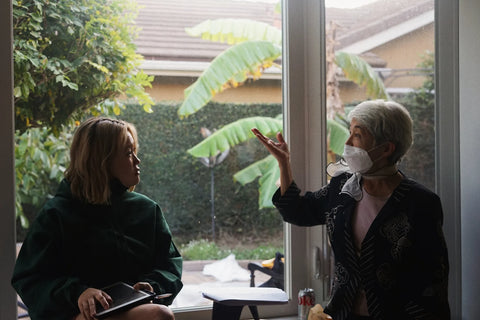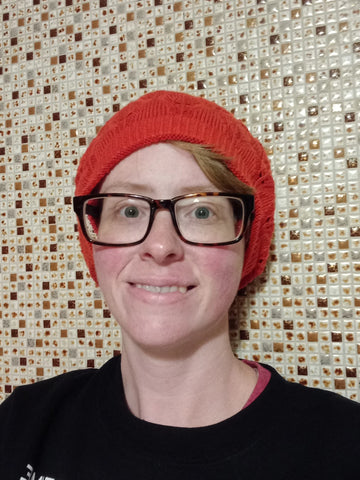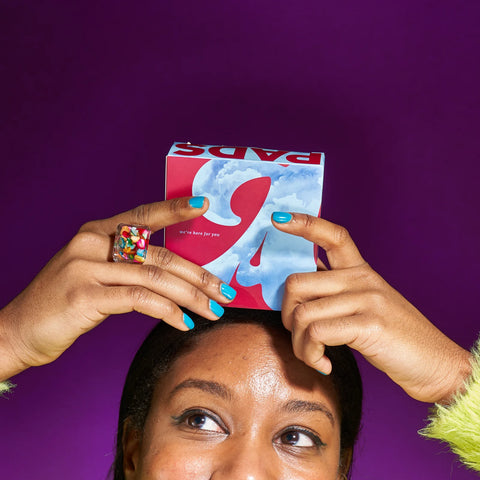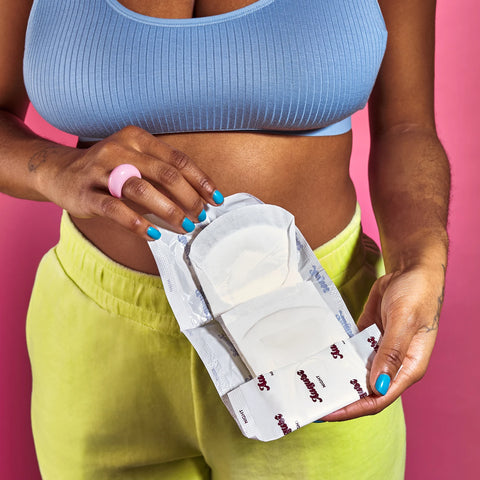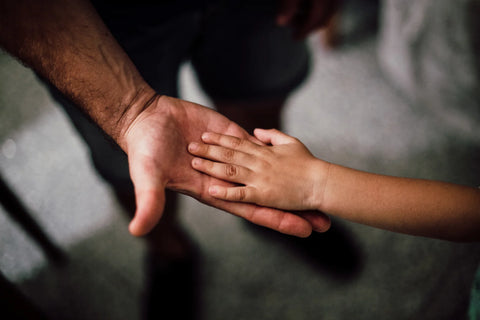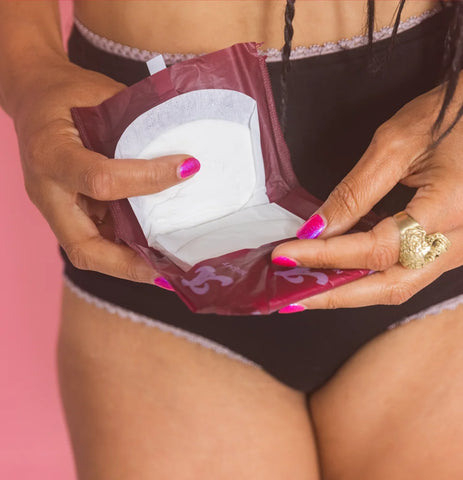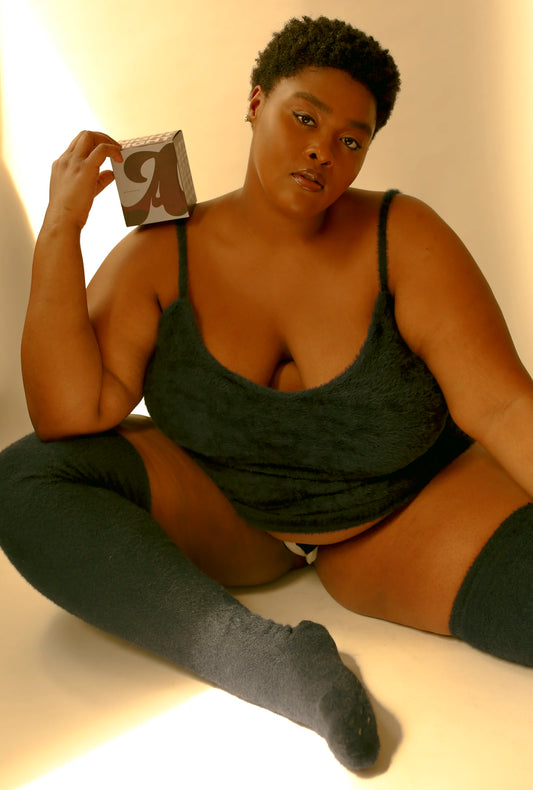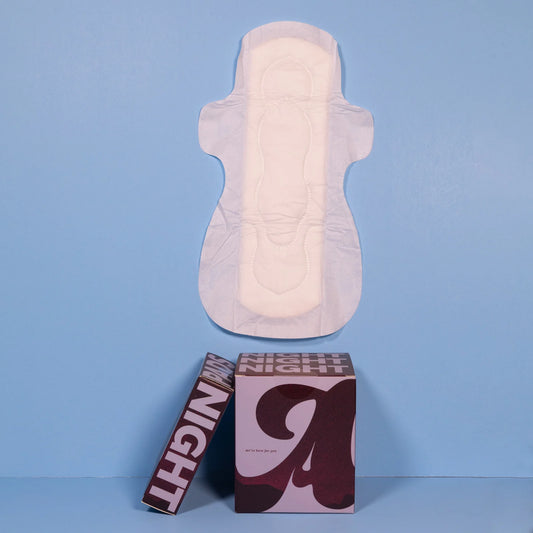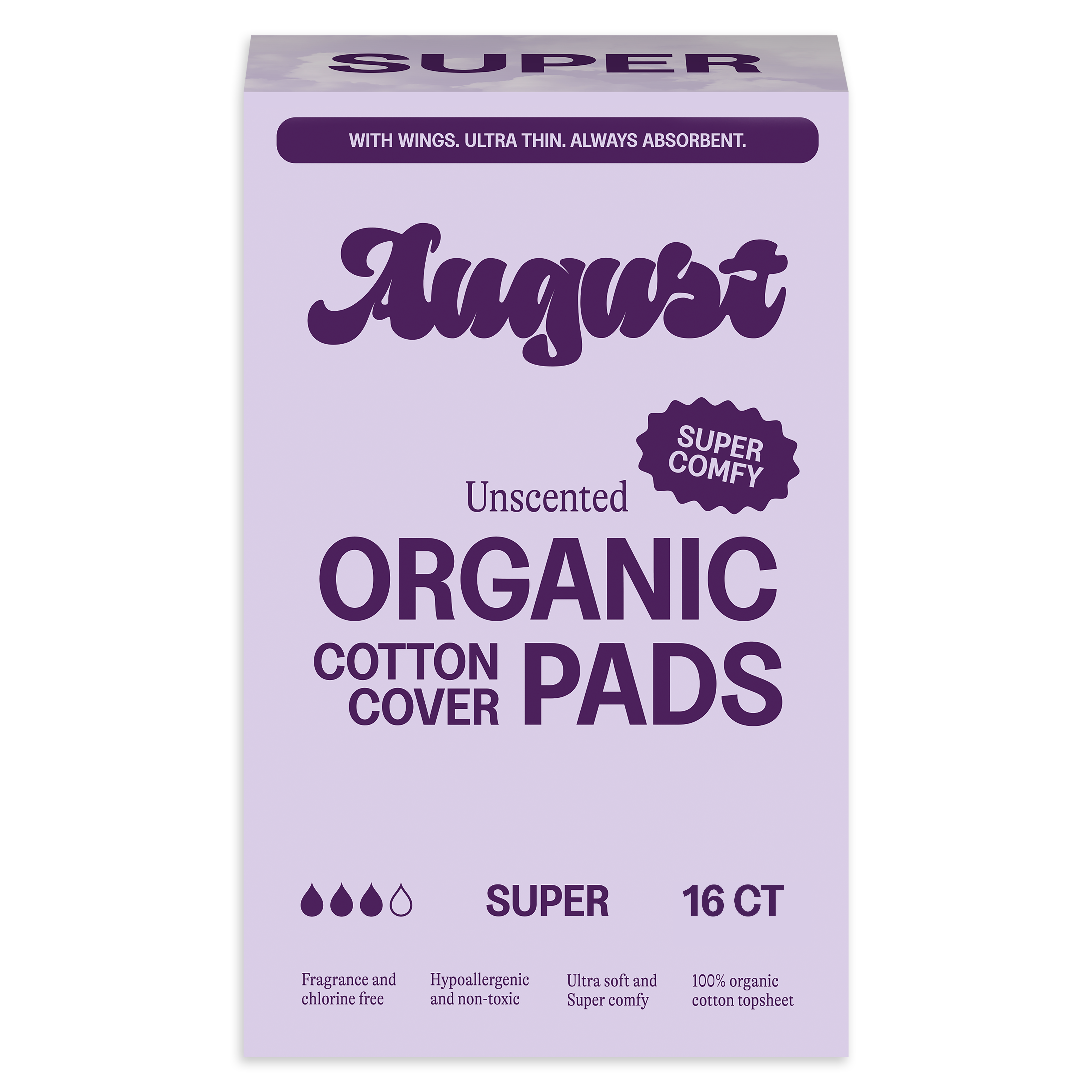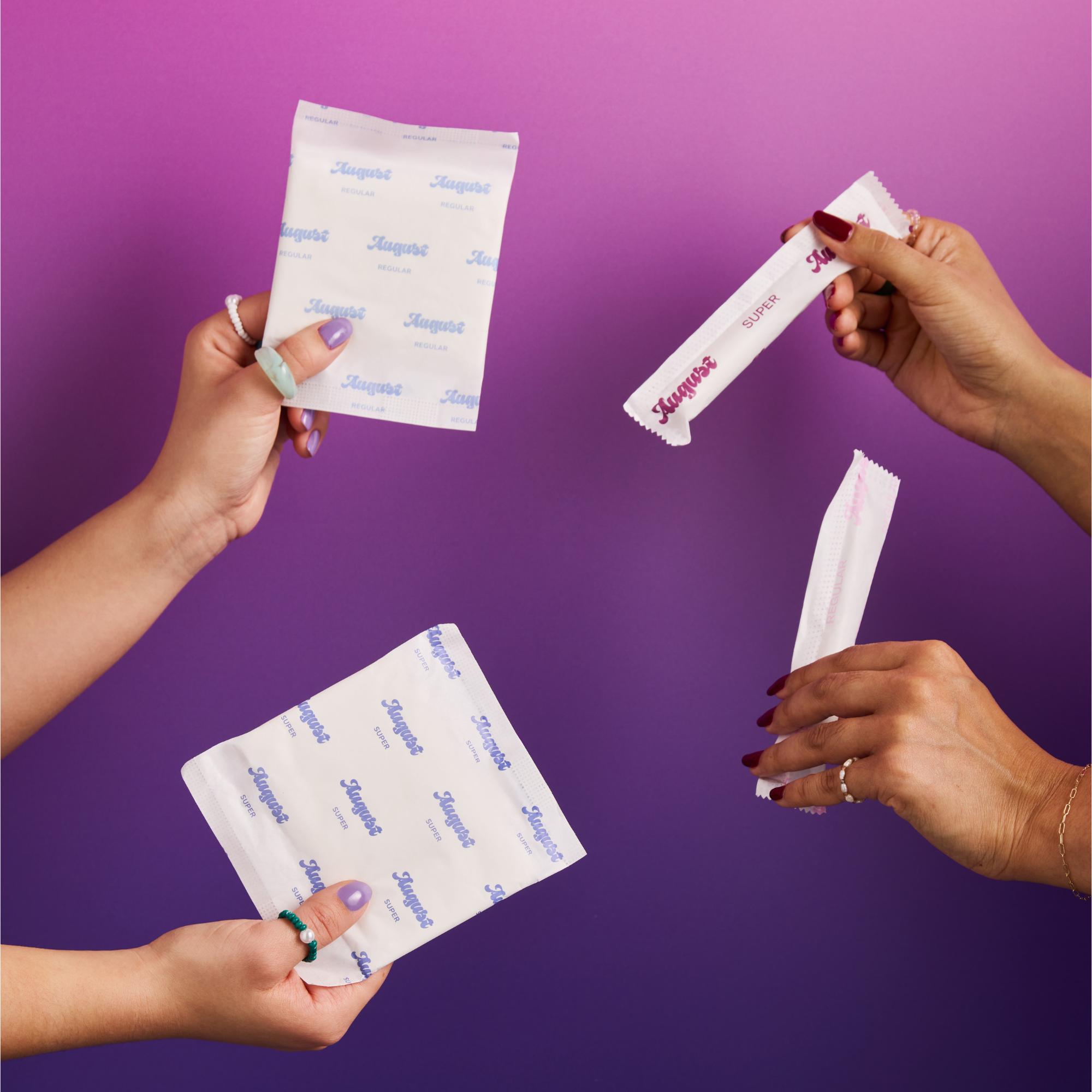July is Uterine Fibroid Awareness Month!
So, of course, we wanted to provide an educational Ask August article that gives you a foundation of knowledge about this period disorder.
For the more technical questions, we’ve included both a “Gen Z answer” and a "What Our Doctors Say", as advised by Dr. Staci Tanouye, MD FACOG, OB/GYN from the August Medical Board.
That way you can get an easy intro and then choose whether or not you want to get into the details! Happy reading :)
What are uterine fibroids?

Gen Z Answer:
Uterine fibroids are benign (aka non-cancerous) muscular tumors that form within the walls of your uterus.
Most people (up to 70%) with a uterus will have a fibroid within their life, but most will remain small and never cause any symptoms or problems. However, in some people, fibroids can grow and may cause pain and heavy bleeding. There isn't a specific cure, however, they can be surgically removed and there are lots of symptom and pain management plans.
Talk to your doctor to help find the perfect treatment plan for you!
What Our Doctors Say:
Fibroids, also medically referred to as leiomyoma, are benign muscular tumors. They grow within the muscular wall of the uterus. They can either be completely within the uterine wall, partially stick outside the wall of the uterus, or push into the inside of the uterine cavity.
You can have a single fibroid or many fibroids. Up to 70% of people with a uterus will have a fibroid at some point in their lives. Most of the time they will remain small and cause no symptoms or problems.
Fibroids are benign, however, there is a malignant type of tumor that is similar called a leiomyosarcoma that is rare. Benign fibroids do not turn into leiomyosarcomas as they are separate types of tumors.
What causes uterine fibroids?
The cause of fibroids is unknown but there is research suggesting that they are caused by hormone fluctuations and may be genetic as they can run in families.
What are symptoms of uterine fibroids?

Most fibroids do not cause any symptoms, but some people with fibroids can experience physical symptoms such as:
- Heavy bleeding
- Painful periods
- Enlargement of the lower abdomen
- Frequent urination
- Pain during sex
- Lower back pain
- Complications during pregnancy and labor and in very rare cases, reproductive problems, such as infertility.
Research also suggests that fibroids may cause psychological distress in addition to physical pain such as:
- Depression, anxiety and body image issues. (Racial and ethnic minorities, particularly those in lower income brackets are reported as more affected by these)
- A significant decrease in day-to-day productivity – something that many menstruators with period disorders or those facing period poverty can relate to.
Are you dealing with a heavy flow? Shop Now to try August's SUPER absorbent period products.
How are uterine fibroids diagnosed?
If your doctor notices any irregularities in the shape of your uterus during your regular check up or if you are having very heavy periods, they may suggest you get an ultrasound, lab test, or both.
An ultrasound will give them a clear image of your uterus to visually check for fibroids or any other structural abnormalities
How do I treat uterine fibroids?

Gen Z Answer:
Not all people with UFs have symptoms and so, often there is no need for treatment. For those of us who do have bothersome symptoms, there are tons of options available.
For example, for more mild cases, your doctor can prescribe you medication to help regulate your periods or pain and for severe cases you can have the fibroids surgically removed.
And for reasons we don’t quite understand, sometimes fibroids can shrink or resolve on their own.
What Our Doctors Say:
Uterine fibroids can be treated in multiple ways.
Some treatments focus on managing symptoms (medications like birth control pills, ibuprofen, or other hormone manipulating medications to help manage heavy and/or painful periods), some focus on removal that may be a temporary solution to them (removal of some fibroids while retaining the uterus), and some treatments are a permanent solution (surgical removal of the whole uterus or hysterectomy).
Among those diagnosed, 71% of respondents from this study used pharmacologic therapy for symptom relief, and 30% underwent surgical or procedural treatment.
Not all fibroids require treatment and not all fibroids need surgical treatment. If you have fibroids, make sure to talk to your doctor about all of your options.
Most people do not have any symptoms of fibroids, for those that do there are lots of treatments (and products!) that can help make your period more manageable.
And for people who are done with having children or do not want children there are even more minimally invasive treatment options such as uterine artery embolization, MRI-guided focused US, and targeted radiofrequency ablation. It’s important to talk with your doctor about which options may work best for your specific types of fibroids.
Should I be worried about uterine fibroids?

Gen Z Answer:
To a certain extent – yes and no.
More than worrying, you should be aware of them. They won't develop into anything deadly but may grow and cause some pain.
If they are not causing any symptoms or problems, then listening to your body and self-monitoring for any new symptoms is all you need to do.
If you are experiencing any severe pain or ongoing irregularities, check in with a doctor as they may need to be followed and addressed.
What Our Doctors Say:
Worried may not be the best word to use – but you should be aware of them.
They are noncancerous growths of the uterus. In many people who have fibroids, they may cause no issues or symptoms at all. In others, it can cause your periods to be heavy, more frequent, and may cause pelvic pain. If you have any symptoms that sound like these or are concerned that you may have fibroids, get in touch with your doctor.
The worrying part is that they are an abnormality that can affect periods and can grow or cause more problems in the future. If they grow large or are in a difficult location, they can cause an increase in pelvic pain, period pain, painful intercourse, bowel and bladder issues, or progressively heavy bleeding with periods that can lead to anemia. But, they are not deadly, and cannot turn into a cancer. Uterine fibroids also aren't associated with an increased risk of uterine cancer.
What are the disparities within those who are diagnosed with uterine fibroids?

Gen Z answer:
TLDR; around two-thirds of menstruators will experience UFs by age 50 yet there is a lack of research on this specific disorder. Also, there are clear racial disparities among those being diagnosed – more POC being diagnosed and more severe symptoms, particularly Black women.
What Our Doctors Say:
Most menstruators will experience uterine fibroids by the age of 50, yet there is still a lack of data that describes the overall patient experience.
The results of this study done by Marsh et al. (2018) demonstrate that those at-risk reported significantly greater symptom severity and under-diagnosis. Another study (2020) conducted by the University of Michigan unpacks the racial disparities for people with uterine fibroids. They state that Black people with uteruses are hit hardest by UFs since they develop them earlier in life, are diagnosed approximately 3 times as frequently as their White counterparts, have larger fibroids, and suffer from more severe symptoms.
The UMich study states that, “nearly a quarter of Black [menstruators] between 18 and 30 have fibroids compared to about 6% of White [menstruators], according to some national estimates. By age 35, that number increases to 60%. Black [people with uteruses] are also two to three times more likely to have recurring fibroids or suffer from complications”.
In conclusion, we need more inclusive research, education, awareness and open conversations
All of the studies sourced for this article (Marsh et al., 2018 & UMich, 2020) emphasize that inclusive research, education, awareness, and early conversations with health care providers is very important to kickstart the treatment plan and outcomes.
We hope to spread more awareness about uterine fibroids through our content channels this month…

Including our episode of The Period Feels where we chatted with Tanika Gray Valbrun to hear about her non-profit, TheWhiteDressProject, that is focused on support for people with UFs.
Listen HERE or on any major streaming platform!
And again, if you're trying to manage the heavy bleeding that comes along with UFs: we're here for you with super absorbent, organic cotton period products. You got this!




